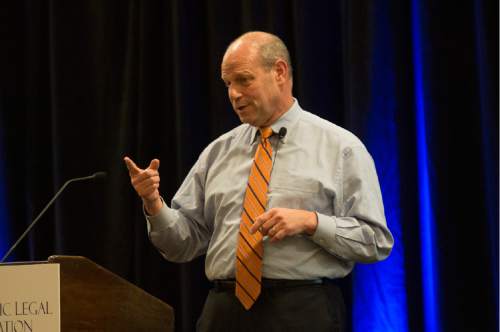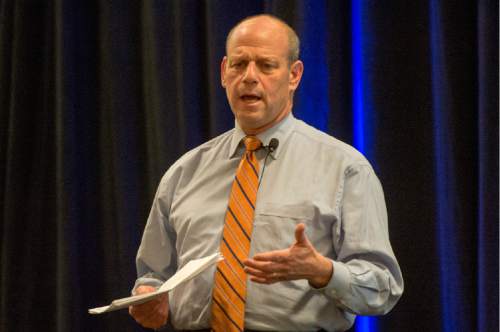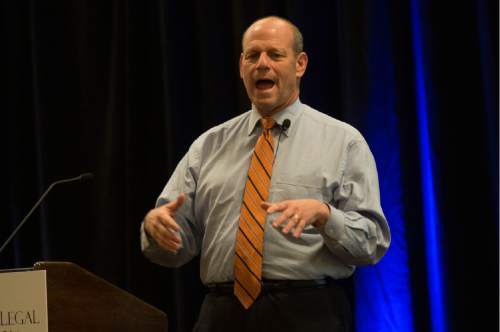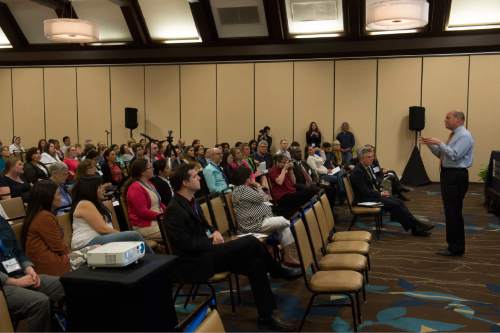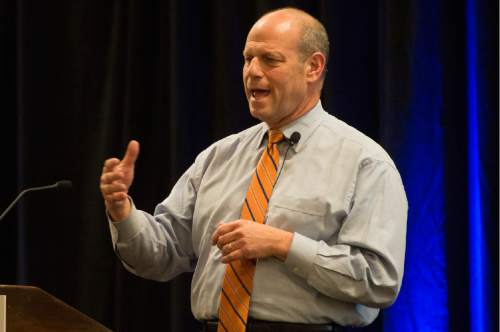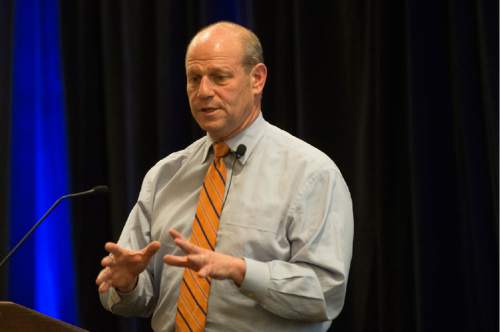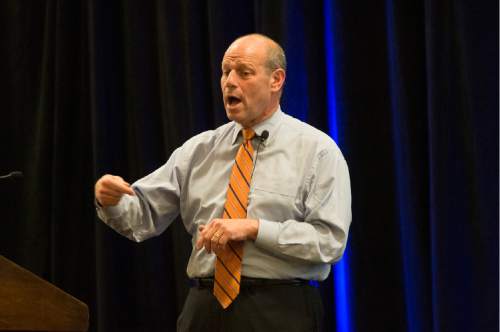This is an archived article that was published on sltrib.com in 2015, and information in the article may be outdated. It is provided only for personal research purposes and may not be reprinted.
Leon Rodriguez, top administrator of the nation's immigration and naturalization system, says one key word is absent from the vast U.S. laws and regulations on immigration.
"You will never once see the word 'justice,' " Rodriguez, director of U.S. Citizenship and Immigration Services (USCIS), told a convention of the Catholic Legal Immigration Network at the Salt Lake City Sheraton Hotel on Wednesday.
The son of Cuban immigrants said it is time to change that, and called for Congress to make the immigration system more just. He also defended President Barack Obama's executive orders seeking to defer deportation of millions.
That action has been halted by a federal lawsuit filed by Texas, Utah and 24 other mostly Republican states.
"Real justice will come when we have reform," Rodriquez said.
"The immigration system that we are working off of … was mostly built back in the 1960s, meaning that it is an obsolete and archaic scheme that does not reflect our economy, does not reflect our demographics, and does not reflect — above all — our values" by sometimes separating families.
Rodriguez told how the system had split his own family after his parents immigrated from Cuba in the 1960s, and led to what he said was a lack of justice for them.
His grandparents won visas to immigrate and join his family, in part because of harassment they faced as Jews. But a bachelor brother of his grandmother was denied a visa — so the grandparents stayed in Cuba for fear that he might be imprisoned as retaliation for them leaving. The grandfather, however, became sick and died.
"I never met him. He never met me," Rodriguez said, adding it is important to remember that every immigration story "is the story of some family's hopes and dreams, and in many cases some family's suffering."
A federal court in Texas has issued a stay against Obama's plans to defer deportation of more "dreamers" brought without documents to America as children, and of people who have relatives who are U.S. citizens or permanent legal residents who have been in the country for at least five years and have clean criminal records. The adminstration is appealing.
Ironically, Rodriguez said he is not discouraged by the stay of those executive actions.
"I am not depressed. I want you to know I am not frustrated. I'll tell you why." He said it is because justice will come only with Congress-passed reform "that gives us a path to citizenship" for undocumented immigrants.
He said Obama's proposed executive actions are just "the path to actual reform."
With that effort stalled and challenged by leading Republicans and more than half the states, he said, it's time to ask critics, "How would you solve the problem? If Obama's path is not the path you want, how would you solve the problem?"
He added, "As dark as it looks right now, it is really just part of the path to reform that we all know is necessary…. We have to just keep coming at it and coming at it. I believe the time is not far away when we will really be working off a legal platform that is a just platform, that is one that reflects our values."
Rodriguez said his agency was ready to proceed with some of Obama's orders just as the court ordered an injunction against them. He said if the stay is ever lifted, it could act quickly to launch the program.
Juan P. Osuna, director of the Justice Department's Executive Office for Immigration Review, also told the convention, "I remain an optimist as well on immigration reform. It is something that has to happen, and will happen."
Osuna also noted that part of Obama's immigration orders have not been enjoined by the courts, including "using discretion to push some cases and not others."
He said his agency is encouraging "prosecutorial discretion where it is warranted" to do such things as help keep families together.


